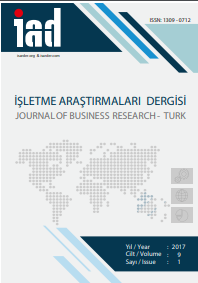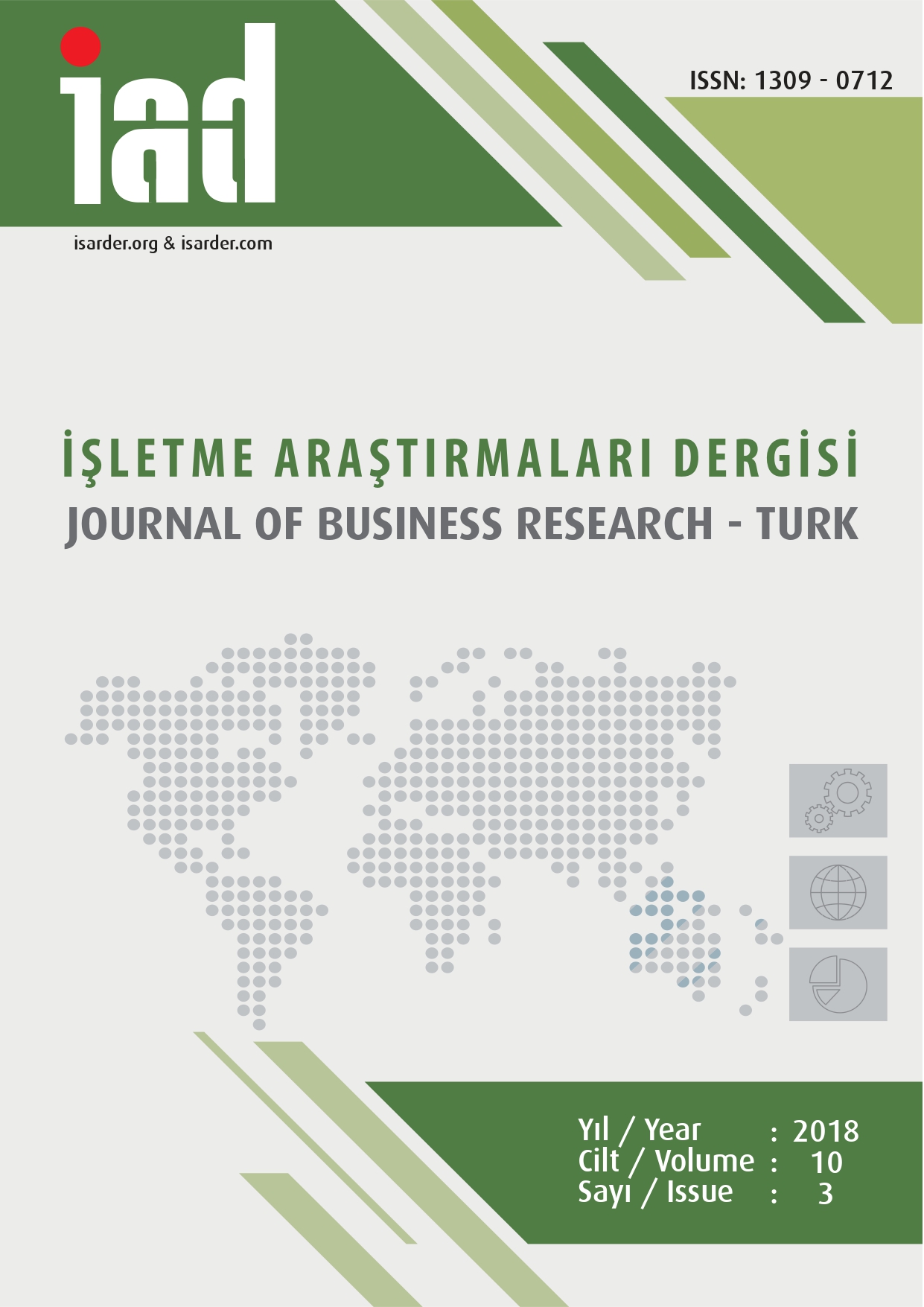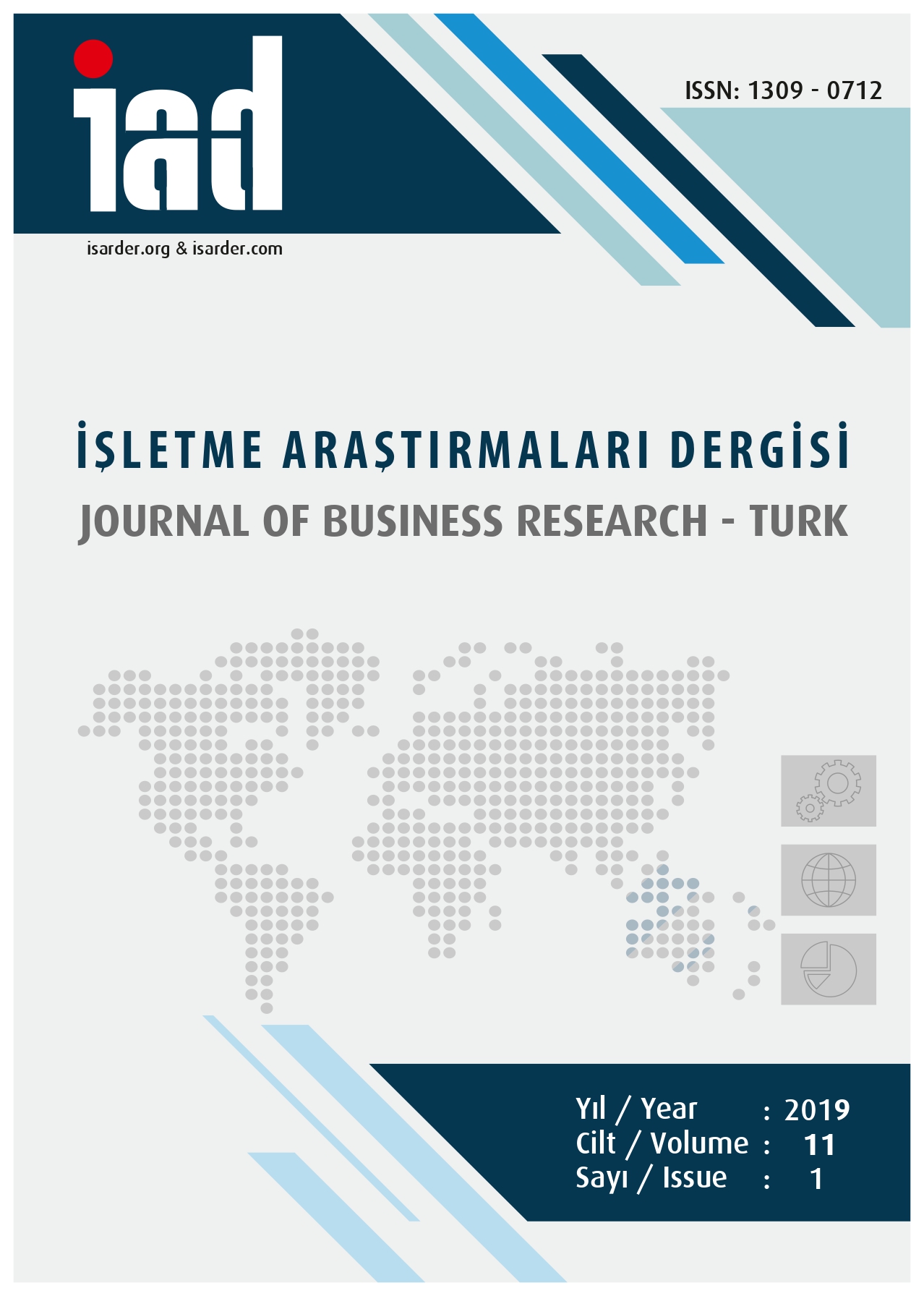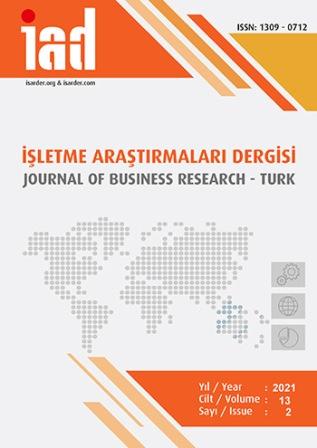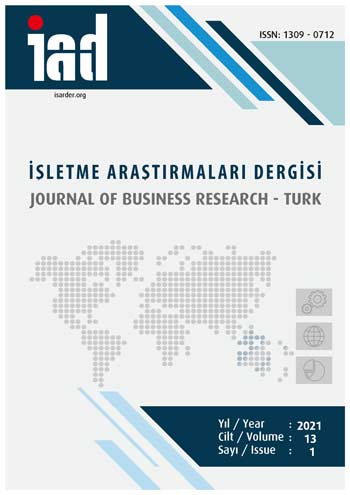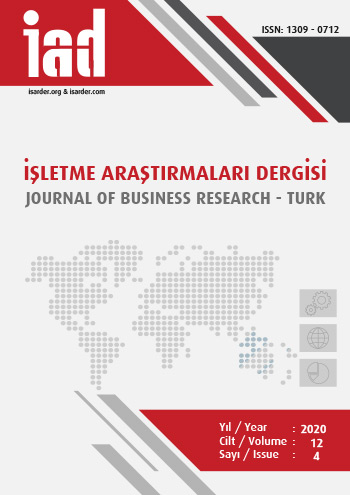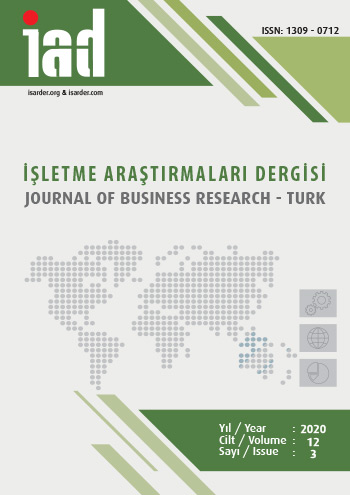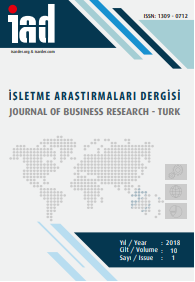
İşletmelerin Sahip Oldukları Bilgi ve İletişim Teknolojileri Kabiliyetinin Çalışanların Yenilikçi Davranışlarına Etkisi: Lider Desteğinin Aracılık Rolü
The aim of this study is to identify the impact of four sub-dimensions of information and communication technologies capabilities (the information technology education, information technology strategy, communication and current follow-up applications, business intelligence applications) on the innovative behaviors of employees and to determine the mediating role of leader support on this impact. The relationship between these variables was analyzed by statistical methods such as correlation and regression analysis, and hierarchical regression analysis was used in testing the mediation effect. Sobel tests were then conducted to confirm the mediation tests. In this study, employees of enterprises operating in electronic communication sector in Ankara were dealt. It was tried to determine the relations between the variables with the data gathered from 568 employees by using the questionnaire prepared in this study. As a result of the study, it was determined that the four dimensions of information and communication technologies capabilities are affecting innovative behaviors positively and influential leader support has a partial intermediary role in the relationship between information and communication technologies capabilities and innovative behavior.
More...
